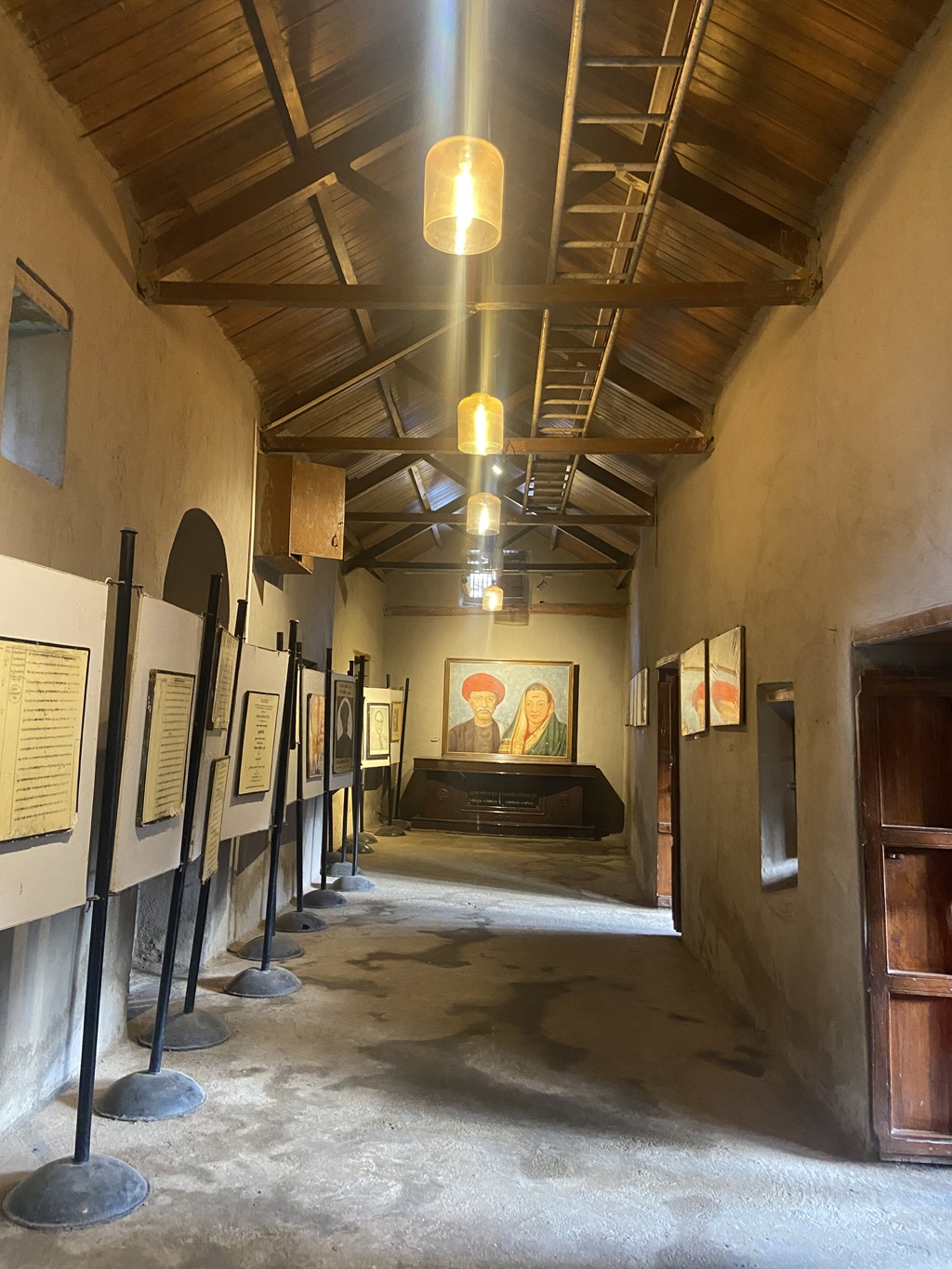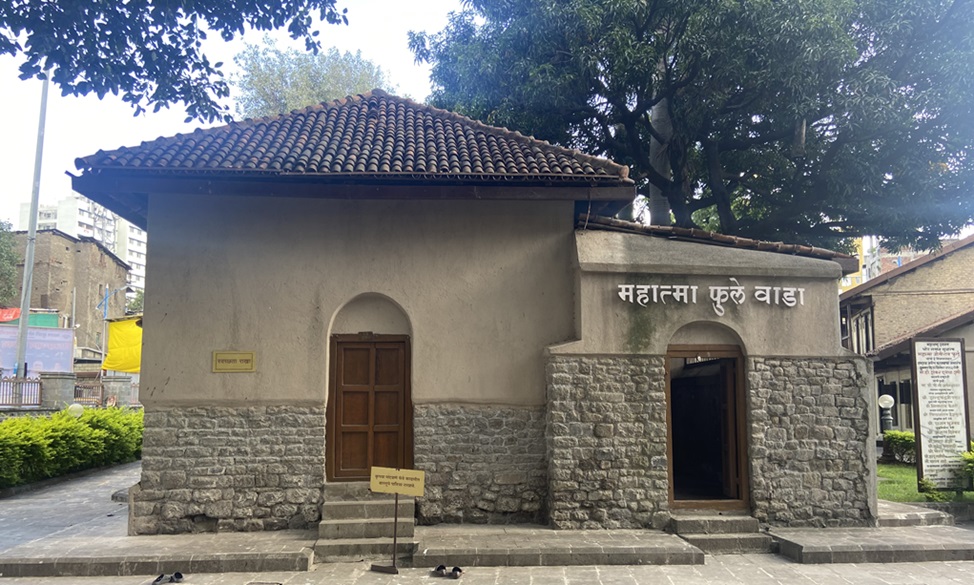[ad_1]
By Uzma Shaikh
Pune, 23rd September 2024: The legacy of Indian history still lingers in many places, one of which stands in the bustling city of Pune, Maharashtra. Amidst the ever-changing cityscape, a small yet significant structure made of stone and mud has stood since 1852. This modest building in Ganj Peth, known as Mahatma Phule Wada, was the home of two of India’s most visionary social reformers, Mahatma Jyotiba Phule and Savitribai Phule. Today, the house is a protected state heritage site under the Maharashtra Ancient Monuments and Archaeological Sites and Remains Act of 1960, recognized for its undeniable historical significance.
Much like the saying “never judge a book by its cover,” this humble house played a monumental role in shaping India’s educational and social landscape. Within its walls, movements were conceived that laid the groundwork for modern education, particularly for women and the marginalized sections of society. It was here that Savitribai Phule, against all odds, took her first steps toward educating women, and Mahatma Phule passionately fought for the rights of the ‘Shudras’ and ‘Atishudras’. This house became the birthplace of numerous reform movements, challenging centuries of deeply entrenched inequalities.
A Light to Education
In the 19th century, the notion of educating women was not even considered, let alone supported. However, Savitribai Phule became the first woman in India to seek formal education, sparking a revolution. Together with her husband Jyotiba Phule, she established the first school for girls in India in 1848, defying societal norms. Despite fierce opposition from the patriarchal society, she persevered, creating a lasting legacy that has shaped the course of education in India. The house still preserves the intellectual legacy of the Phule couple, with writings and works that echo their vision.
The Fight for Equality
Beyond education, the Phules also fiercely fought against caste-based discrimination that had long plagued Indian society. Mahatma Phule founded the ‘Satya Shodhak Samaj’ in 1873, a movement dedicated to promoting equality and challenging untouchability. One of their most significant acts of rebellion was opening the well in their home to people from lower castes, granting them access to clean water. The well still stands in the backyard, a symbol of the Phules’ commitment to social justice and equality.

A House That Nurtured Revolution
Mahatma Phule Wada stands as a solemn witness to the Phules’ struggles and triumphs. Though small in appearance, the house holds a monumental place in history. Today, it serves as a library, preserving the works and writings of Jyotiba Phule, who authored several influential texts, such as ‘Shetkaryache Asud’ and ‘Gulamgiri’, which articulated a vision for an equal and just society. His writings provide a critical analysis of India’s social and political landscape.
A Lasting Legacy
In an India still grappling with issues of inequality and social reform, the legacy of Mahatma Phule and Savitribai Phule serves as a guiding light. Their vision, far ahead of its time, laid the foundation for an inclusive society. Mahatma Phule Wada is a reminder that revolutions don’t always begin in grand places—they often start in small homes, nurtured by the courage and conviction to challenge the status quo. The Phules’ sacrifices and relentless struggle stand as a testament to how change, no matter how difficult, can reshape history.
[ad_2]

